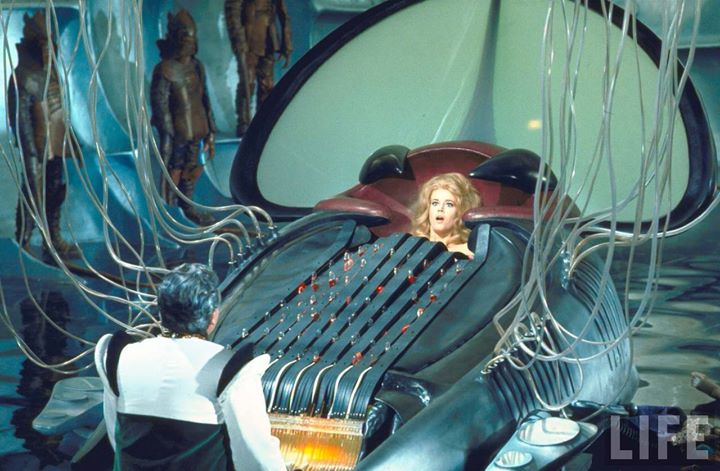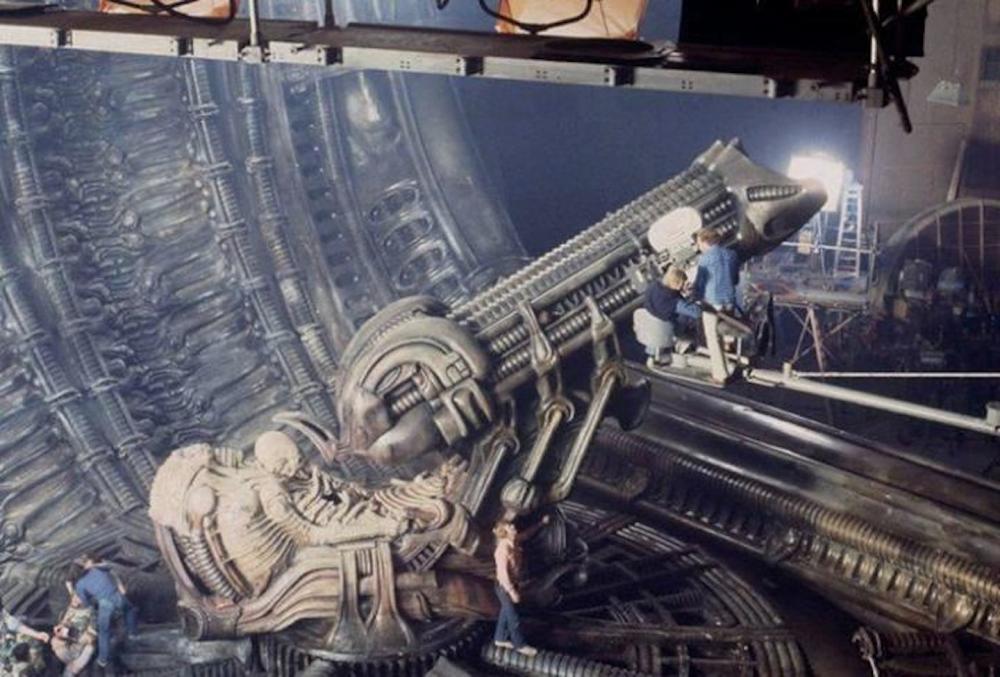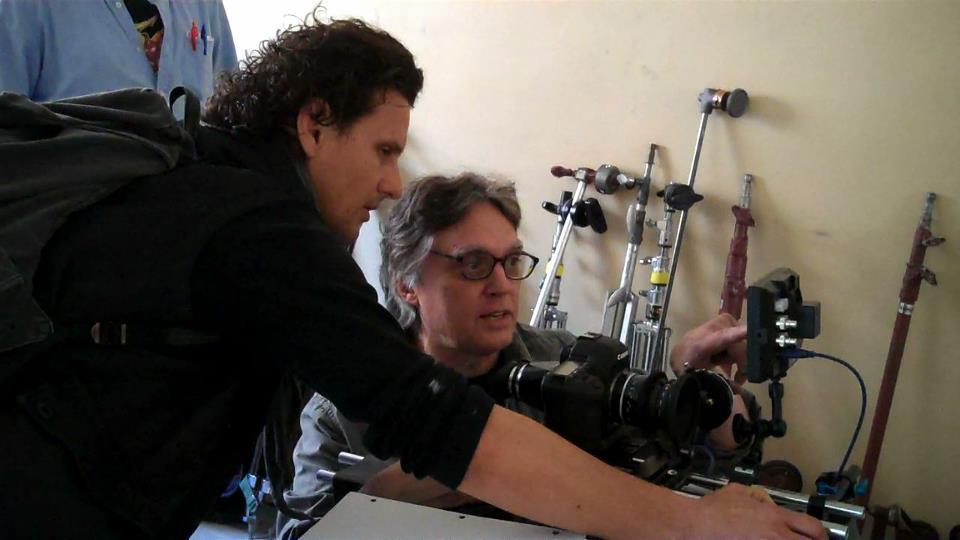-
Posts
5 -
Joined
-
Last visited
About William Malone

Recent Profile Visitors
The recent visitors block is disabled and is not being shown to other users.
William Malone's Achievements

New member (1/5)
9
Reputation
-
 andrgl reacted to a post in a topic:
NAB 2016. Can Ang Lee’s cinematic reality of laser projected 3D 120fps make 24p film obsolete?
andrgl reacted to a post in a topic:
NAB 2016. Can Ang Lee’s cinematic reality of laser projected 3D 120fps make 24p film obsolete?
-
Mr. Lee is a great director but he's so wrong, on so many levels on this one, I don't know where to start. I think by now its been proven that audiences don't like High Frame Rates... They don't even like 30FPS, let alone 120 FPS. Lets first take 3D. It has come and gone at least three times already in the history of film and the reason is clear. It will never be the generally accepted format until they can do 2 things. #1. (As someone already pointed out) It needs to be projected in a hemispheric format with no frame because a frame destroys the illusion. #2 (and perhaps more significantly) It will NEVER be THE format until you can get rid of the glasses. Audiences don't like the grimy glasses and the headaches they create. In a film-making sense, there are things that just don't work in really good 3D. Close-Ups for instance, They don't look like close-ups anymore, they look like giant things, If you've ever gone to an Imax screening and see a close up... it's weird. RE: High Frame Rates - I don't think anyone wants the 6 O'Clock news look for motion pictures. High frame rates get rid of blurs. Blurs are your friend. (Learn it, know it, live it (Judge Reinhold -Fast Times at Ridgemont High") Blurs ad smoothness to the image. The higher the frame rate the closer to reality. Motion pictures are not, and have never been, about reality but are about varying states of dreams. The best motion pictures carry you away from reality and imbed you in that dream. 24FPS is magic..... Don't destroy the magic....
-
 Ed_David reacted to a post in a topic:
Canon Taylor Swift fix Canon?
Ed_David reacted to a post in a topic:
Canon Taylor Swift fix Canon?
-
I think we all forget that the whole Canon-video thing was really a fluke. Canon is not a video company. They are primarily a STILLS camera firm. As a company they are very conservative. I liken them to Rolls-Royce in the 1950's and 60s.. slow and plodding and selling things that are well-built but 10 years behind times. I personally love Canon and feel the same pain. I would love to buy a new Canon for my film productions but it seems that's not going to happen. I think that when they introduced the 5D Mk3 (which was pretty underwhelming) it became obvious that the MK2 was not a company trend but a fortunate mistake. I fully expect the 5D mk4, when it comes out, will be very modern, in a fashion of a few years ago,
-

Dog Schidt Optiks Flare Factory 58 (PL Mount) Review
William Malone replied to Andrew Reid's topic in Cameras
Andrew, You've hit a topic that I've been ruminating on for some time. I've been thinking a lot about the whole 4K thing and image sharpness. It occurred to me that the films that have the most lasting and profound effect on my psyche are not necessarily the sharpest and most realistic. In fact those films are the least interesting. The power of film is to carry us away to another place and time. Often places that never existed or idealized versions of places. Super-sharp realistic images seldom move us in the way those haunted (often blurry images) made by uncoated lenses of than superior glass do. Even in the beginning, filmmakers such as Carl Theodor Dryer understood this. Dryer while making Vampyr in 1934 did everything he could to take the "edge off" the image including shooting through silk stockings and having the film processed completely wrong. I personally use a 5D MK2 with old Nikon film lenses. -
 agolex reacted to a post in a topic:
Kodak celluloid film saved by studios - oh and by the way - what's the point?
agolex reacted to a post in a topic:
Kodak celluloid film saved by studios - oh and by the way - what's the point?
-
 agolex reacted to a post in a topic:
Kodak celluloid film saved by studios - oh and by the way - what's the point?
agolex reacted to a post in a topic:
Kodak celluloid film saved by studios - oh and by the way - what's the point?
-
Good theory.. but essentially incorrect. While early photography did use a number of seriously dangerous chemicals, they were replaced in the early 1900s by much more benign chemistry. All of the materials you mentioned are listed as "low toxicity". Manufacturing computer gear is highly toxic... hence why you're not supposed to throw those old electronics in the trash. None of this is anywhere near as much of a environmental disaster as automobiles (and including electric cars BTW) and the biggest ED is humans (Chuckle) We should seriously hold on making them for awhile.
-
 Ed_David reacted to a post in a topic:
Kodak celluloid film saved by studios - oh and by the way - what's the point?
Ed_David reacted to a post in a topic:
Kodak celluloid film saved by studios - oh and by the way - what's the point?
-
 Franka Mech T. Lieu reacted to a post in a topic:
Kodak celluloid film saved by studios - oh and by the way - what's the point?
Franka Mech T. Lieu reacted to a post in a topic:
Kodak celluloid film saved by studios - oh and by the way - what's the point?
-
 Patrick reacted to a post in a topic:
Kodak celluloid film saved by studios - oh and by the way - what's the point?
Patrick reacted to a post in a topic:
Kodak celluloid film saved by studios - oh and by the way - what's the point?
-
 Nikkor reacted to a post in a topic:
Kodak celluloid film saved by studios - oh and by the way - what's the point?
Nikkor reacted to a post in a topic:
Kodak celluloid film saved by studios - oh and by the way - what's the point?
-
 Jimmy reacted to a post in a topic:
Kodak celluloid film saved by studios - oh and by the way - what's the point?
Jimmy reacted to a post in a topic:
Kodak celluloid film saved by studios - oh and by the way - what's the point?
-
Andrew, I just couldn't let this post go. I guess I would fall into the category of the "privileged few" having been a "film" director for over 35 years and having shot film almost exclusively. Let me start by saying while I do have a certain sense of nostalgia for film, I'm not someone who doesn't enjoy and in fact embrace new technology. I've been happily shooting "video" for the last 5 years with a ML equipped Canon 5D Mark 2. I have been waiting for the "perfect digital cinema camera" to come along before I upgrade. That has yet to happen. Because I'm an old guy, perhaps I may have a different prospective on this issue. The fall of film (in my demented perspective) is not that digital is better.. but because its cheaper. The seeds of the fall of film I think began in the early 80s. When I made my first film, I shot it in 16mm. At the time, a 400' roll of film (about 10 minutes running time) cost $34.00. Because of the Hunt Brothers trying to corner the Silver market, within a few weeks, the price of Silver went through the roof. Kodak raised the price to $76.00, which of course also included raising the price of print stocks. After a few more weeks, the price of Silver collapsed. Kodak never adjusted the price back down. Since then the prices of film and processing continued to rise until film and lab work fell out of reach of all but high end users. This left a huge hole in the market that video filled. In todays economy film cannot survive. Regarding Film versus Video; I made a film for Warner Bros in 2001. It was shot on an Arri 535 (Super 35mm) and was posted completely digitally. It was only the second film ever done that way at the time. The very first was the Cohen Brothers "Brother Where Art Thou?" The film completion bond company called it "Voodoo Technology". Now looking back on it all these years later, I still think this marriage (Film Capture/Digital Post) was the best it ever was. Let me be clear, you can get some terrific looking images with digital cameras but if you look at films made 10-15 years ago there are still looks you just can't get with an electronic sensor. There is a smoothness.. a silkiness that's just wonderful. For me digital has three big problems. Number 1 Rolling Shutter. LISTEN UP CAMERA COMPANIES!!! Don't even think about putting out another video camera with this problem... This is NOT a minor issue. (Yes I know some of the cameras are coming out with global shutters...and I know there are work arounds). You shouldn't have to rethink how you shoot something to accommodate the camera. Number 2 6 O'clock News Syndrome - I guess that I'm the only one who sees this as I've never heard anyone else mention it but it drives me crazy. During some action scenes you suddenly become aware you're watching "video" and it takes you out of the story. The movie suddenly looks like the 6 o'clock news and the illusion of film is suddenly gone. This seems to only happen during moving or action shots. I wish I could finger the culprit here but I just can't tell what's going on. Maybe someone can tell me. Number 3 And this one is HUGE. Archiving of Images. Many of the major film studios still do Black and White film separations of their movies including motion pictures shot on digital. Film has a shelf life of at least 100 years. This is now a proven fact. To date there is no safe and foolproof way to ensure what you shot will survive longer than a few years. I believe this era will be a period of the greatest loss of photographic images... It saddens me deeply... So will I go back to film? Probably not (except for shooting some art projects with my old 4x5 Grapflex). Do I miss it? Yes. There is something very tactile and wonderful about it. You open the side of the camera ... " I love the smell of Silver Halides and Acetate in the morning.... Smells like ... Victory". PS sorry for being so long winded. WM



